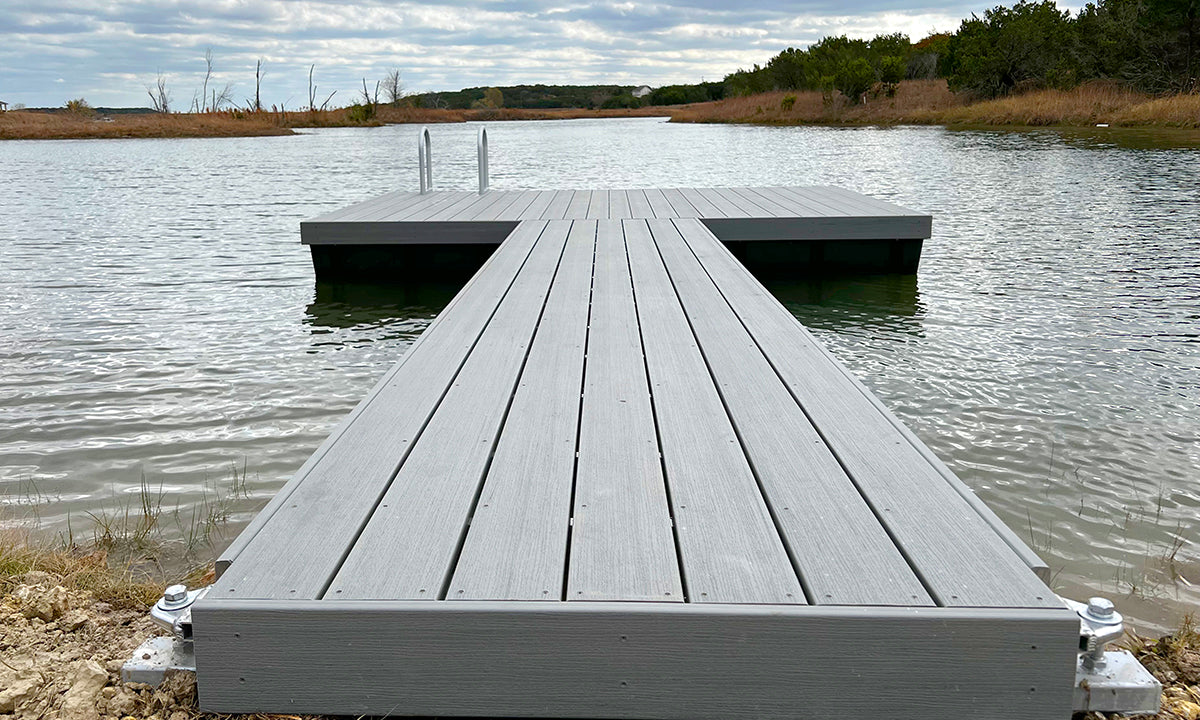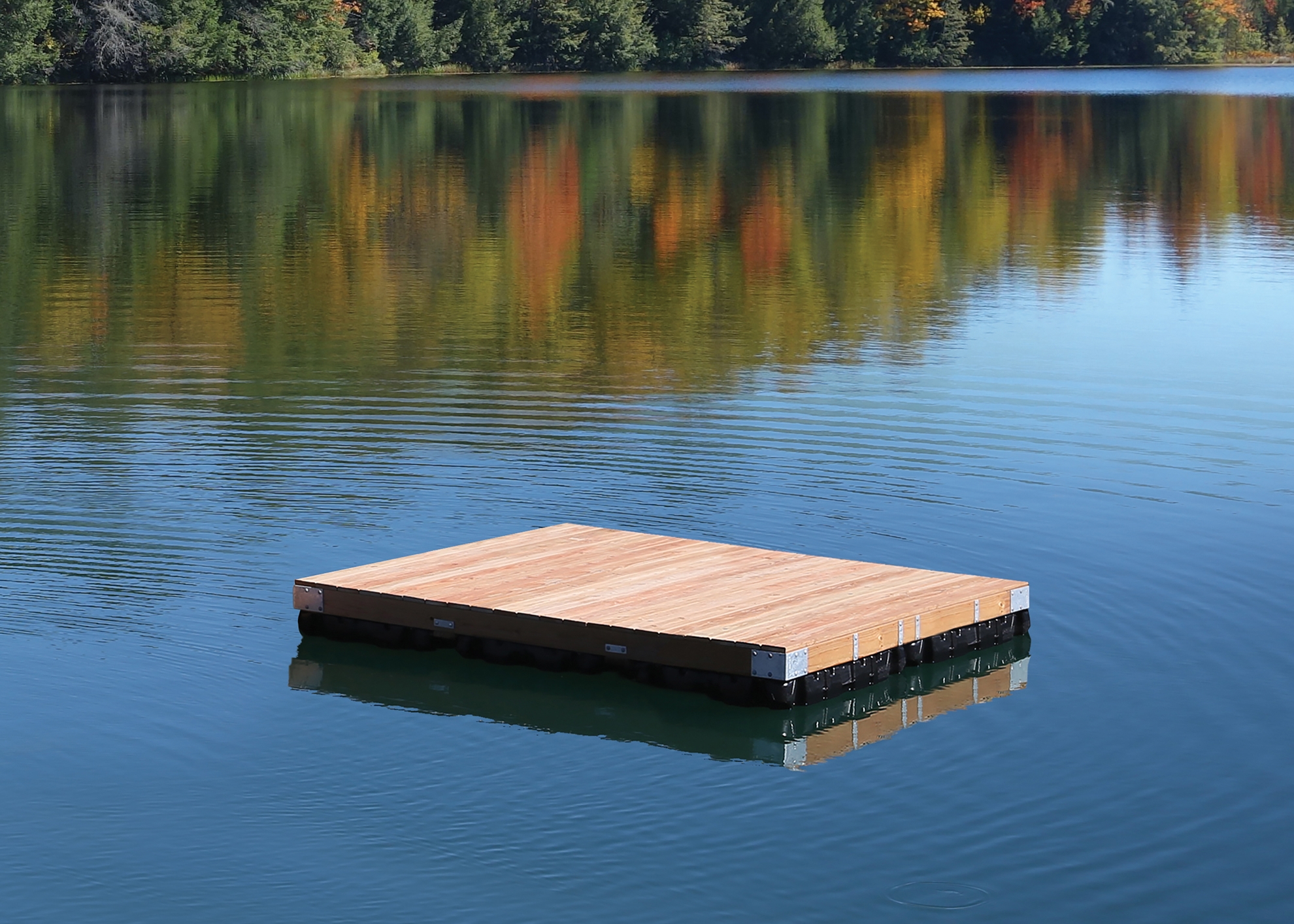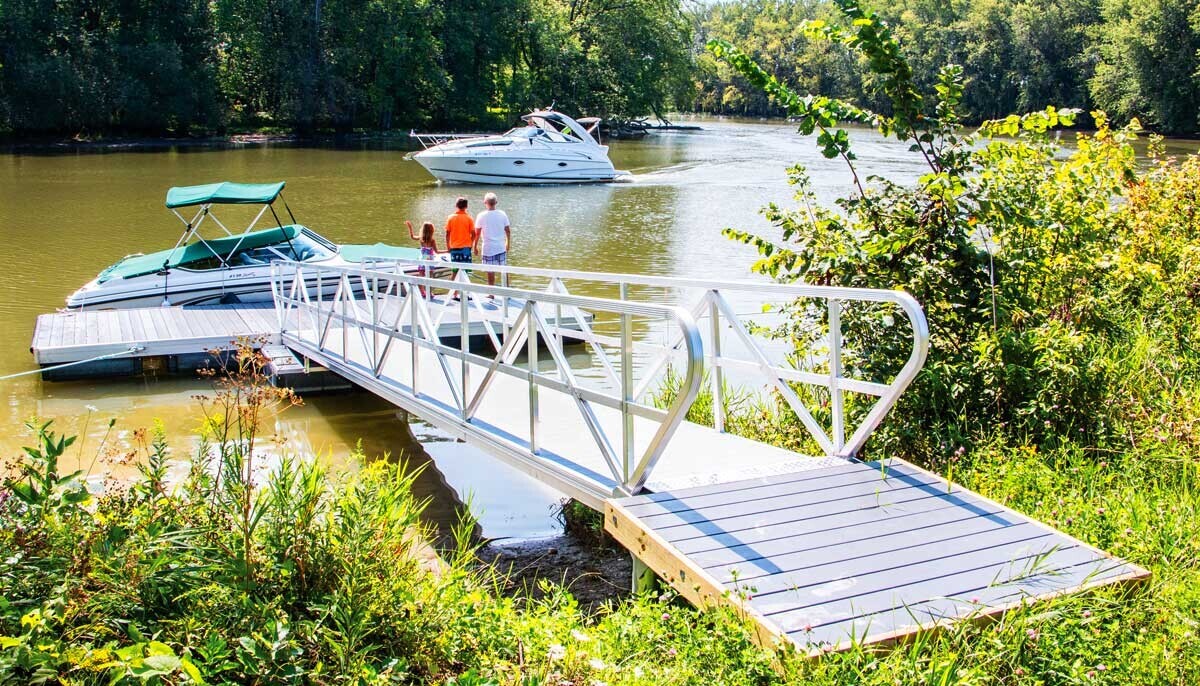Picking the Right Dock Company: Variables to Think About for a Seamless Installation
Picking the Right Dock Company: Variables to Think About for a Seamless Installation
Blog Article
The Ultimate Guide to Selecting the Ideal Floating Docks
Choosing the optimal floating dock requires a detailed understanding of different aspects that influence both efficiency and longevity. Variables such as dock types, materials, and necessary functions substantially influence your decision-making procedure.
Understanding Floating Dock Kind
When selecting a drifting dock, it is important to understand the numerous kinds readily available, as each serves distinctive purposes and applications. Floating docks mainly come under 3 groups: modular, stationary, and pontoon docks.
Modular docks are composed of private areas that can be quickly set up or reconfigured, making them optimal for transforming water levels and varied usages, such as leisure activities or business procedures. Their versatility permits personalization based on certain demands.

Pontoon docks are identified by their resilient framework, usually composed of several pontoons that supply stability and support. They are specifically appropriate for larger vessels and are commonly made use of in marinas or for waterside residential properties. Comprehending these types help in selecting one of the most suitable floating dock to satisfy specific demands, guaranteeing optimum performance and safety and security.
Secret Products for Sturdiness
Selecting the appropriate materials for floating docks substantially effects their longevity and long life. The most typical products consist of wood, plastic, metal, and composite products, each offering distinctive advantages and restrictions.
Timber, frequently favored for its visual charm, needs normal upkeep to endure wetness and degeneration. Pressure-treated lumber can boost resistance to rot, however it might still be at risk to pests and weathering.

Plastic docks, made from high-density polyethylene (HDPE), are immune to rust, UV radiation, and impact, making them a preferred choice for seaside atmospheres. Their lightweight nature likewise facilitates very easy setup and moving.
Metal docks, normally constructed from light weight aluminum or galvanized steel, offer exceptional stamina and resilience. They are immune to corrosion, specifically when treated, however might require extra insulation to stop heat build-up in warm environments.
Composite materials, combining timber fibers and plastics, deliver the benefits of both wood and plastic, resisting dampness and fading while needing minimal upkeep. - floating dock company
Inevitably, the choice of materials must align with ecological problems, planned use, and maintenance preferences to make certain the floating dock remains practical and cosmetically pleasing over time.
Necessary Attributes to Consider
While the choice of materials is important, taking into consideration essential features for floating docks is equally essential to make sure optimum efficiency and customer complete satisfaction. One crucial function to examine is the dock's buoyancy capability, which establishes how much weight it can sustain without immersing. dock company. This is important for fitting boats, personal boat, and even recreational activities
In addition, transportability is a substantial factor to consider. Depending on your needs, you might desire a dock that is simple to transfer and disassemble, particularly if you plan to transfer it seasonally. Stability is another essential attribute; a properly designed floating dock ought to minimize movement brought on by wind and water currents, supplying a protected platform for customers.
Safety attributes, such as non-slip surfaces and rounded sides, are additionally important to avoid accidents, specifically in damp problems. Additionally, take into consideration the schedule of accessories, such as cleats, ladders, and bumpers, which can boost the performance of your dock.
Installment and Upkeep Tips
Setting up and preserving a drifting dock requires careful preparation and focus to detail to ensure its long life and optimal performance. Begin by choosing a suitable place that reduces direct exposure to solid currents and waves, which can cause deterioration. Guarantee that the water deepness suffices for the dock's elevation and that it is anchored securely to avoid motion.
During setup, adhere to the maker's guidelines closely, as inappropriate assembly can compromise security. Use top notch products immune to corrosion, such as aluminum or treated wood, to enhance toughness. Routinely evaluate all parts, consisting of drifts, adapters, and securing systems, for indicators of damages or wear.
Upkeep is read critical for expanding the life of your dock. Tidy the surface areas occasionally to prevent algae buildup and check for any type of loose installations that might need tightening up. Guarantee they continue to be totally free and intact check from slits if your dock utilizes flotation tools. In addition, take into consideration using protective coverings to wooden parts to minimize weathering impacts. By adhering to these installment and upkeep suggestions, you can enjoy a useful and trusted floating dock for many years to come.
Budgeting for Your Dock
Budgeting for your dock is a vital step that can substantially affect your overall satisfaction and financial investment in a beachfront residential or commercial property. Establishing a clear budget assists you browse the different choices readily available and ensures you make notified choices that straighten with your financial abilities.
Begin by determining the size and style of the dock you call for, as these factors will significantly affect the price. Floating docks can differ significantly in price, depending upon products, buoyancy, and attributes like accessories and ramps. Research different producers and vendors to contrast prices and understand the market value.
In enhancement to initial costs, think about continuous expenditures such as maintenance, insurance coverage, and possible repairs. Assign funds for these repeating expenses to prevent surprises down the line. It's additionally sensible to allocate any type of needed licenses or examinations, which might be needed by local policies.
Lastly, remember the potential return on financial investment. A tactical dock can improve your residential or commercial property's value and allure, giving a favorable monetary effect in the long-term. By budgeting effectively, you can make certain that your dock fulfills your requirements without jeopardizing your financial security.
Final Thought
In verdict, selecting the excellent floating dock demands a complete examination of different variables, including dock types, products, vital features, and installment procedures. Prioritizing toughness and conformity with local guidelines inevitably enhances functionality and residential or commercial property value. Cautious factor to consider of financial restrictions will certainly better ensure a sound investment. By adhering to these guidelines, individuals can make informed choices that advertise lasting complete satisfaction and usability in water atmospheres.

While the selection discover this of products is vital, considering vital features for floating docks is just as essential to make sure optimal efficiency and customer satisfaction.Setting up and preserving a drifting dock calls for cautious preparation and focus to information to guarantee its longevity and optimum efficiency. Floating docks can vary significantly in cost, depending on products, buoyancy, and features like accessories and ramps.In conclusion, choosing the perfect floating dock requires a complete assessment of numerous aspects, including dock kinds, materials, crucial features, and installation procedures.
Report this page